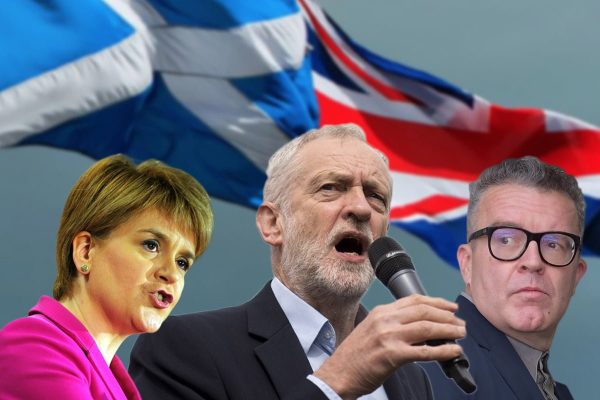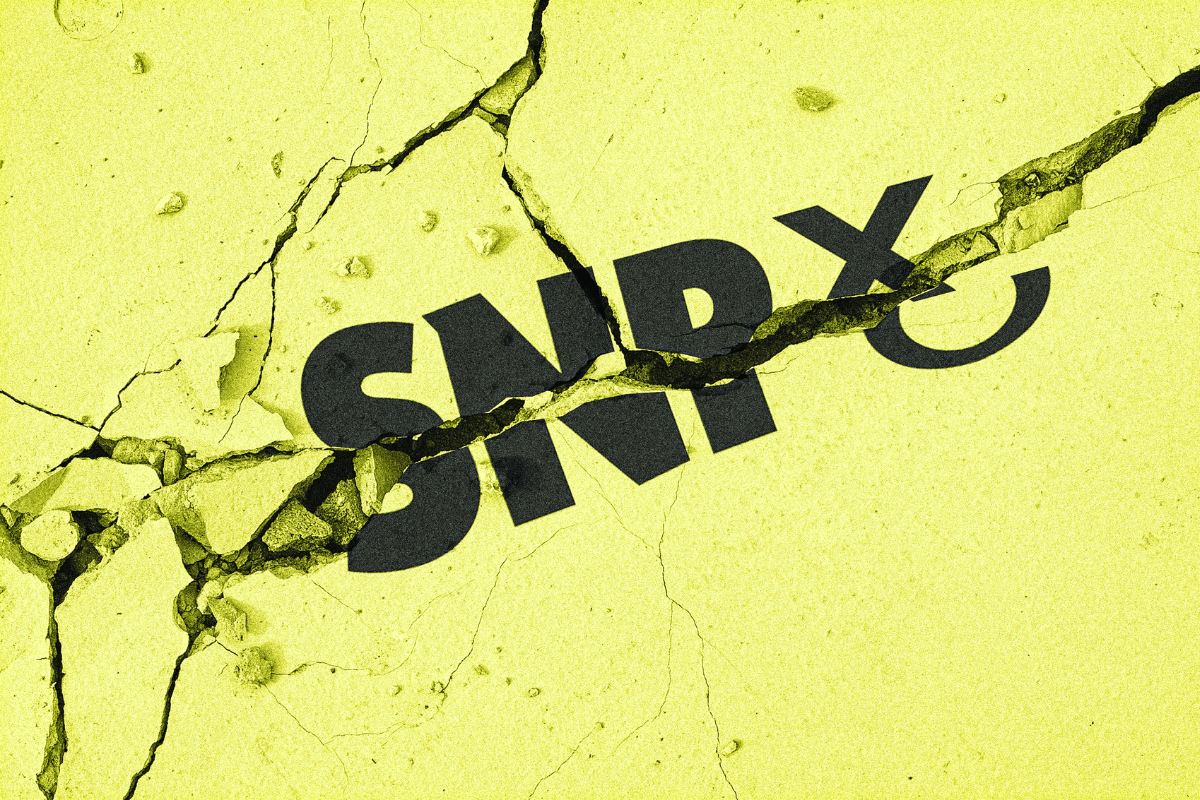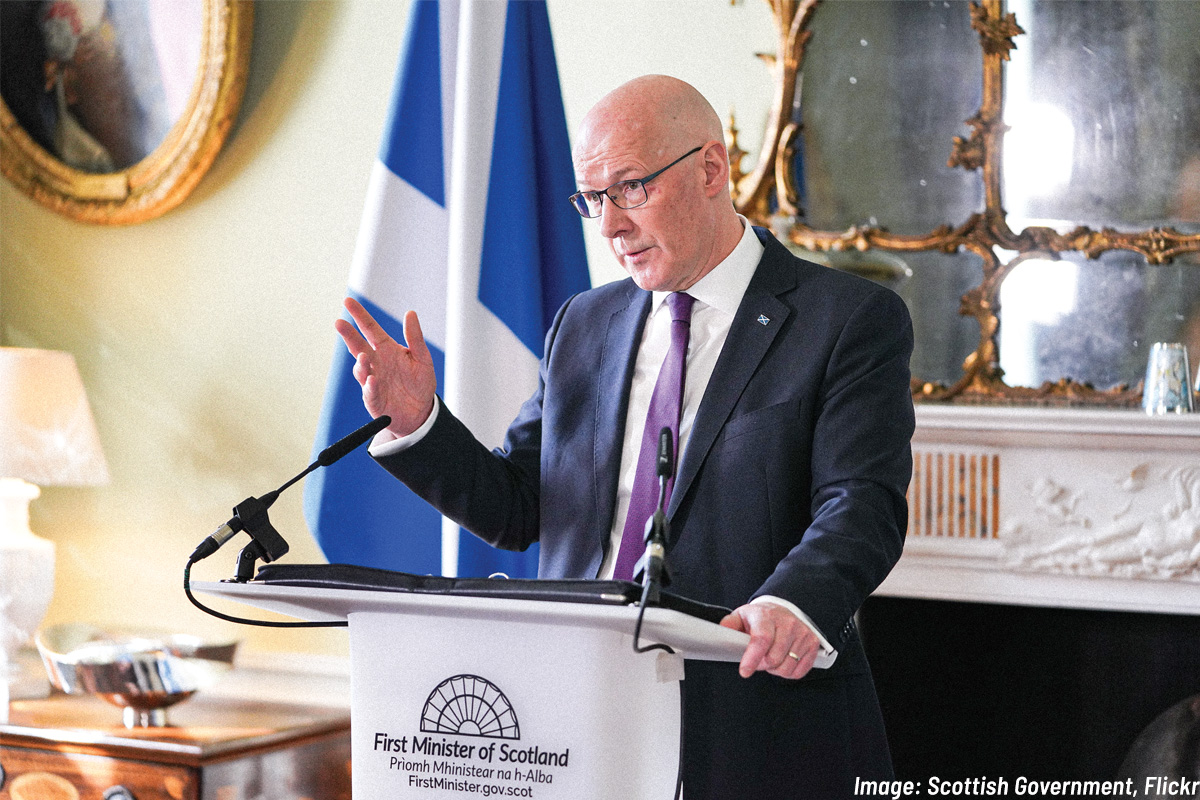Since Jeremy Corbyn and Zarah Sultana announced their intention to start a new left party, there have been over 800,000 sign ups to this potential political formation. An estimated 60,000 of these have been in Scotland.
This clearly shows that many people are open to the idea of radically challenging the current system.
Communists in Scotland welcome and enthusiastically support this initiative. But in order for such support to be effective, we need to learn the lessons of the 2010s – particularly the period when Corbyn led the Labour Party.
Lessons of the 2010s
The Corbyn movement had a much smaller effect in Scotland than the rest of the UK. Corbyn became leader less than a year after the 2014 Scottish independence referendum, which catalysed a mass movement of radicalised workers and youth in favour of independence.

This referendum also saw the Labour leaders team up with the Tories in the ‘Better Together’ (i.e. anti-independence) campaign.
This was one betrayal too many for Scottish workers, whose once-solid support for Labour had been chipped away at by years of attacks and counter-reforms by the Blairite right wing.
As a consequence, the 2015 general election saw Scotland return only one Labour MP. The SNP – who had campaigned to the left of Labour, opposing austerity and the Westminster establishment – secured a landslide of 56 seats out of 59.
Whilst many in Scotland had a certain respect for Corbyn, therefore, his party was ‘damaged goods’. The SNP was too popular for Corbynism to have any significant resonance.
10 years on, the SNP no longer has the same influence over the Scottish working class. After years of attempting to manage the crisis of Scottish capitalism, they’ve been hit by a series of crises.
Consequently, the SNP’s membership figures have collapsed by half over these years, from 125,000 members in 2019 to less than 60,000 today.
National question
Breaking from the discredited Labour Party opens up possibilities for Corbyn and Sultana to connect with workers and youth in Scotland.
Visiting a picket line in Glasgow, Corbyn recently stated that he would support a second independence referendum – allowing the people of Scotland to decide their own future.
This is significant. During his time as Labour leader, the party opposed this.
At times, Corbyn indicated his sympathy for the idea of a second independence referendum. Yet he consistently backed down on this question, in the face of the attacks from the Labour right wing.
Now, freed from the straitjacket of the Labour Party machine, Corbyn will have no excuse for opposing the democratic right to self-determination for Scottish voters.
Opposition to Trident

The right wing of the Labour Party also ardently supported the Trident nuclear weapons programme. And again, despite his personal opposition to Trident, Corbyn bent to this pressure.
This compromise ultimately pleased no one – least of all people living in Scotland, who don’t want expensive, dangerous nuclear warheads on their doorstep, simply for the sake of Britain’s imperialist interests.
All of Britain’s deployed nuclear weapons are stored in Scotland, despite widespread opposition within the country.
Trident is estimated to cost at least £100bn over the next 30-50 years. Some estimate the cost will be over £200bn. This could be invested in socially-useful industries like green energy, construction, and healthcare.
Since the 1950s, the SNP’s opposition to nuclear weapons has helped it win support. Corbyn’s new party, equally, could gain support by offering a real alternative on this question.
Socialist programme
The SNP leaders have lost their radical edge over the last decade. Their old promise to be a voice of the Scottish working class – whilst propping up capitalism – has been exposed as bankrupt. The party has become more openly pro-business.

Scotland suffers from high levels of child poverty, an acute housing crisis, and a whole range of other social problems. The SNP leaders have no answers on these issues.
Corbyn and Sultana could therefore undercut the SNP’s support by putting forward a programme of bold socialist measures: expropriation of the big banks and landowners; nationalisation of super-exploitative industries such as energy and tourism; and mass investment in health and social services.
Political convulsions
In Scotland, there is barely any pre-existing Corbynist tradition. This will make it even more necessary for Corbyn and Sultana to get the ball rolling and build on the excitement created by their announcement of a new party.
The coming period will be one of political convulsions and revolutionary struggles. The radicalisation of the 2010s will be dwarfed by the coming battles.
Workers and young people in Scotland, as in the rest of Britain, are searching for a way out.
We call on our readers – across Scotland and beyond – to join the Revolutionary Communist Party, to ensure that the movement is armed with clear perspectives, fighting methods, and a revolutionary, internationalist programme.






